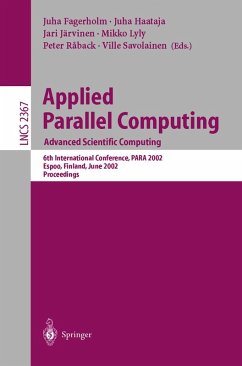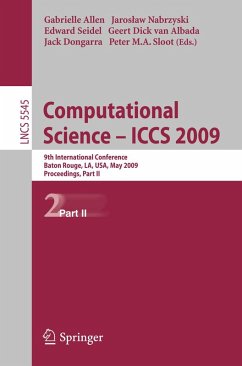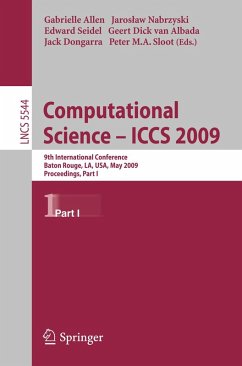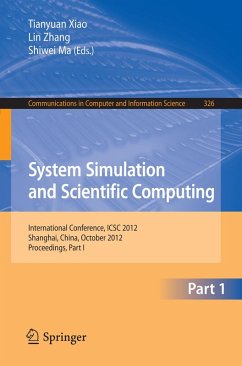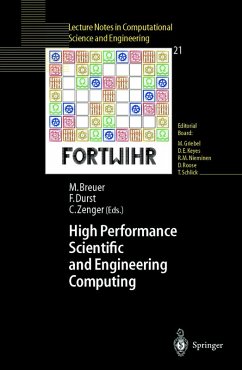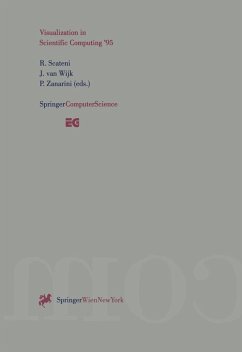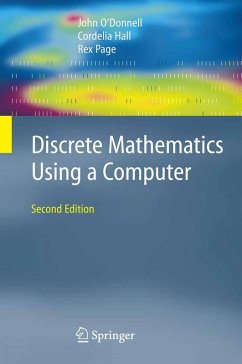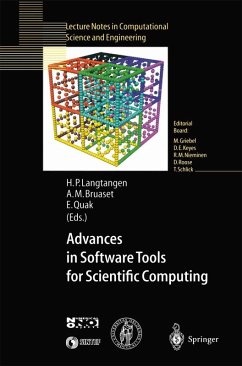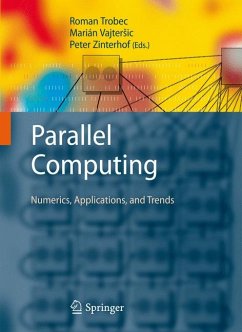
Parallel Computing (eBook, PDF)
Numerics, Applications, and Trends
Redaktion: Trobec, Roman; Zinterhof, Peter; Vajtersic, Marián
Versandkostenfrei!
Sofort per Download lieferbar
72,95 €
inkl. MwSt.
Weitere Ausgaben:

PAYBACK Punkte
36 °P sammeln!
The use of parallel programming and architectures is essential for simulating and solving problems in modern computational practice. There has been rapid progress in microprocessor architecture, interconnection technology and software devel- ment, which are in?uencing directly the rapid growth of parallel and distributed computing. However, in order to make these bene?ts usable in practice, this dev- opment must be accompanied by progress in the design, analysis and application aspects of parallel algorithms. In particular, new approaches from parallel num- ics are important for solving comple...
The use of parallel programming and architectures is essential for simulating and solving problems in modern computational practice. There has been rapid progress in microprocessor architecture, interconnection technology and software devel- ment, which are in?uencing directly the rapid growth of parallel and distributed computing. However, in order to make these bene?ts usable in practice, this dev- opment must be accompanied by progress in the design, analysis and application aspects of parallel algorithms. In particular, new approaches from parallel num- ics are important for solving complex computational problems on parallel and/or distributed systems. The contributions to this book are focused on topics most concerned in the trends of today's parallel computing. These range from parallel algorithmics, progr- ming, tools, network computing to future parallel computing. Particular attention is paid to parallel numerics: linear algebra, differential equations, numerical integ- tion, number theory and their applications in computer simulations, which together form the kernel of the monograph. We expect that the book will be of interest to scientists working on parallel computing, doctoral students, teachers, engineers and mathematicians dealing with numerical applications and computer simulations of natural phenomena.
Dieser Download kann aus rechtlichen Gründen nur mit Rechnungsadresse in A, B, BG, CY, CZ, D, DK, EW, E, FIN, F, GR, HR, H, IRL, I, LT, L, LR, M, NL, PL, P, R, S, SLO, SK ausgeliefert werden.



